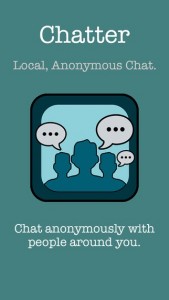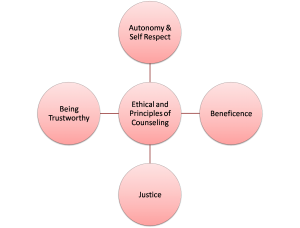Confidly
Using group blog style chat and the option for one on one chat to discuss sensitive topics anonymously with other members of the public.
Features:
- Anonymous – stay fully anonymous
- Secure – Sign up and password protected
- Chat Privately – Find people and chat through private messages
- Remove Negativity – Block users you do not like
- Report Abuse – Report abusive content
- Lock your worry – prevent users from posting further opinions
- Say thank you – use the thank you button when a comment makes you happy
Uses:
- To share secrets and met people with similar stories
- When you feel lonely and need someone to speak to
- As a self-help tool
- To reduce panic and stress when you feel there is no one around you to speak to
Common Topics:
- Dating and relationships
- Marital issues and counselling
- Emotional abuse
- Eating disorders
- Personal development or self-help
- Financial issues
- Loss and grief
- Mental health
- Addictive behaviours
Chatter
Find people nearby to chat with anonymously, using GPS its shows how far away the other people are.
Features:
- Anonymous chat
- Area based – chat with people near you
- Connections are referred to as buddies with the ability to keep up chat with them without being near them
- Can create group chats
Uses:
- When you feel lonely and need someone to speak to
- To get to meet new people in an area near you
Common Topics:
- General conversation to make friends
Whisper
Uses images with short passages of text imprinted on them to communicate.
Features:
- See secrets anonymously posted by people near you
- Ability to add school, college or university to see secrets posted by classmates
- Create your own whispers
- Private messaging between users
- Respond to other peoples whispers anonymously
- Browse whispers on topics that interest you
Uses:
- To share secrets
- As a self-help tool
- Engage with people in similar situation
Common Topics:
- Dating and relationships
- Pregnancy
- Children
- LGBTQ
In the media:
http://www.theguardian.com/world/2014/oct/16/-sp-revealed-whisper-app-tracking-users
Agonyapp
An anonymous relationship advice app, modern day agony aunt where you can be the person asking the question or helping to assist other people.
Features:
- Start and join conversations anonymously or as yourself
- Share your problems
- Have you problems answered to in real-time
- Use images or videos to express yourself
- Vote on comments
- Browse through people problems for topics relevant to you
Uses:
- Discuss issues with people in similar situations
- Be part of the community that can help you with your personal problems
Common topics:
- Relationships
- Family
- Friends
- Sex
- Marriage
- Health and Beauty
- LGBT
- Teen
- Parenting
- Life
In the media:
http://www.dailymail.co.uk/femail/article-2521377/Agonyapp-new-app-answers-relationship-woes.html
Canary

Anonymous company chat, share insider news, thoughts and rumours with your co-workers.
Features:
- My Company: a specific area to discuss with other employees from the same place of work
- Popular: Most popular posts currently on the application
- Following: Comments made from any other users that you have chosen to follow
Uses:
- Only verified co-workers can create posts in your company timeline
- Follow and comment on the inner workings of other companies
- See what tending across companies
Common Topics:
- Insider news
- Thoughts and rumours
In the media:
http://recode.net/2014/11/10/anonymous-app-canary-is-all-about-inter-office-gossip/
Application to Trustpal
All of the applications above all show aspects that will be included in our application Trustpal. They show that there is a requirement for such an application as all of these applications have received positive reviews. Proving there is a benefit to anonymous chat applications, this benefit could be utilised by the University by creating the TrustPal app. Allowing students to confide in trained individuals about any issues or worries they may currently be dealing with, without having to talk face to face or over the phone with someone.





